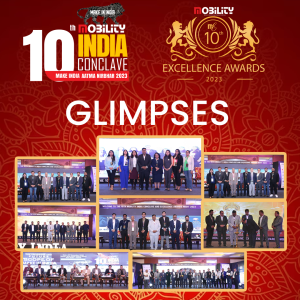India currently ranks 36th, globally, in internet inclusion (based on availability, affordability, relevance, and readiness). Current internet penetration in India is 33%, rural penetration is at 16%, according to COAI’s IMC – Deloitte report, launched during the inauguration of the first ever India Mobile Congress at Pragati Maidan, New Delhi.
Globally, broadband has been considered a key element in achieving a country’s socio-economic objectives; additionally, it helps drive transformation in quality of life by enabling and improving services such as healthcare, education, banking, government development programs while facilitating social inclusion. India lags behind other countries in broadband penetration with only 23% i.e. around 310 million subscribers as of August, 2017. Rise in broadband penetration to 60% in India is expected to translate into a 5-6% increase in country’s GDP. The accelerated socio-economic growth of India and success of the ambitious government programs depend significantly on enabling broadband access to the masses.
According to COAI’s report, ‘setting aspirational goals’, ‘increasing planned budgetary allocation and effective usage of USOF’, ‘implementing policies and guidelines to standardise deployment of infrastructure’ are some of the key recommendations for consideration to build this connectivity-infrastructure for billions.
The report also addressed Net Neutrality as a continuous area of debate, and why it is critical for the regulator to take a holistic approach towards it before it defines its approach – principle-based/ prescriptive; ex-ante/ex-post, etc. Similarly, it is deemed important to define the regulatory guidelines towards new emerging technologies which are giving rise to new use cases, while arguing for a stable regulatory.
Speaking on the launch Rajan S Mathews, Director General, COAI said “The telecom industry is contributing significantly to the Indian economy. The industry has ensured that the Government’s Digital India programme reaches the farthest corners of the country and everyone reaps the benefit of new communication technologies. We envision an empowered society where every individual participates in the economic growth of the country. Mobile connectivity and data services have played a pivotal role in bridging the digital divide and moving India towards a truly equitable and democratic nation. With the lowest call rates in the world and affordable access to data the industry truly is at the cusp of revolution.”
Adding this to report, PN Sudarshan, Partner at Deloitte Touche Tohmatsu India LLP, said, “As the fastest growing and second largest telecom market, India represents a strong destination for investment. Telecom is redefining mobility, work, governance, etc. and will promote geographical, financial and social inclusion and enable the interplay of technologies and industries for exponential growth propelling India towards a $5 Trillion economy.”
Key highlights of the Report:
- Smart City: Telecom is expected to be the single largest catalyst for increasing the points of interface for G2C, G2B and G2G services. Machine to machine (M2M) communications targeted through smart solutions e.g., smart governance, integrated traffic & transport system, command & control centres will play a big role in redefining a city’s operations and create an ecosystem facilitating streamlined decision making and enabling seamless service delivery.
- Smart Healthcare: The future of healthcare shall rely heavily upon IoT, tele-monitoring and monitoring through wearable devices. Also, e-medicine is expected to become more robust in terms of its offerings, fueled by prevalent schemes viz. Digital India platform, to facilitate collaborations with international organisations to enhance R&D, Make in India, for manufacturing specialized mobile units, and Skill India, for training paramedics and employees of public and private hospitals alike.
- Smart Money: Regulations on payments banks, the central government’s focus on financial inclusion, the near universal coverage of Aadhaar as a digital identity, the innovations across payment systems and the rapid adoption of smartphones in India have created an enabling environment for the development of digital payments
- Smart Energy: ICT, considered as the nervous system of “Smart Grid”, will encourage more consumer participation for efficient energy usage through smart interactive end user systems delivering near real time energy data at consumer fingertips. In addition, for the utility, ICT can make possible, through the Intelligent Electronic Devices (IEDs), a real-time “as operated view” of the power network, transforming our passive energy networks into smart responsive energy networks.
Smart Agriculture: Various attempts at modernizing Indian Agriculture are witnessing implementation of IOT at various scales, e.g., hyperspectral remote sensing using drone systems, soil monitoring sensors, smart irrigation etc.





